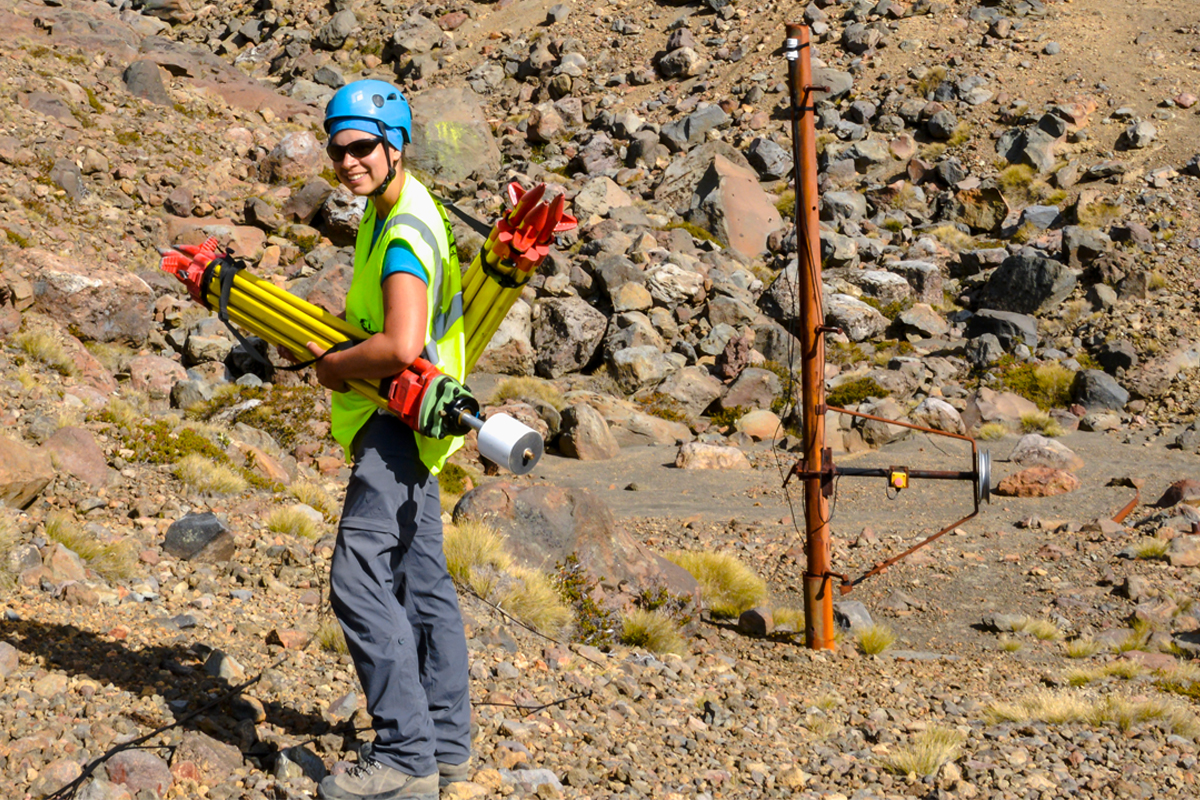All Categories
Featured
Table of Contents
Geophysical Survey In Archaeology in Secret Harbour WA 2020

(PREM)., and the boundaries between layers of the mantle are constant with stage shifts.

This makes plate tectonics possible. Schematic of Earth's magnetosphere. The solar wind Flows from left to. If a planet's electromagnetic field is strong enough, its interaction with the solar wind forms a magnetosphere. Early space probes mapped out the gross measurements of the Earth's electromagnetic field, which extends about 10 Earth radii towards the Sun.
Inside the magnetosphere, there are reasonably dense areas of solar wind particles called the Van Allen radiation belts. Geophysical measurements are generally at a particular time and location. Precise measurements of position, together with earth contortion and gravity, are the province of geodesy. While geodesy and geophysics are different fields, the two are so closely linked that many clinical companies such as the American Geophysical Union, the Canadian Geophysical Union and the International Union of Geodesy and Geophysics incorporate both.
Geophysical Survey - An Overview in Ascot Australia 2023
, combines huge collaborates and the regional gravity vector to get geodetic coordinates. This approach just supplies the position in 2 coordinates and is more tough to utilize than GPS.
Gravity measurements became part of geodesy because they were required to related measurements at the surface area of the Earth to the recommendation coordinate system.
Water level can also be measured by satellites utilizing radar altimetry, adding to a more accurate geoid. In 2002, NASA launched the Gravity Healing and Climate Experiment (GRACE), wherein two twin satellites map variations in Earth's gravity field by making measurements of the distance in between the 2 satellites utilizing GPS and a microwave ranging system. Satellites in area have made it possible to collect information from not only the visible light area, however in other areas of the electro-magnetic spectrum. The planets can be characterized by their force fields: gravity and their magnetic fields, which are studied through geophysics and space physics. Determining the modifications in acceleration experienced by spacecraft as they orbit has actually enabled fine information of the gravity fields of the planets to be mapped.
Job Profiles : Geophysicist Physics in South Lake Australia 2022

Because geophysics is interested in the shape of the Earth, and by extension the mapping of features around and in the world, geophysical measurements include high accuracy GPS measurements. These measurements are processed to increase their accuracy through differential GPS processing. When the geophysical measurements have been processed and inverted, the translated outcomes are outlined utilizing GIS.
Numerous geophysics business have created in-house geophysics programs that pre-date Arc, GIS and Geo, Soft in order to fulfill the visualization requirements of a geophysical dataset. Expedition geophysics is applied geophysics that often utilizes remote sensing platforms such as; satellites, aircraft, ships, boats, rovers, drones, borehole picking up devices, and seismic receivers.
Aeromagnetic information (airplane collected magnetic information) collected utilizing standard fixed-wing aircraft platforms must be fixed for electromagnetic eddy currents that are created as the airplane moves through Earth's magnetic field. There are also corrections connected to modifications in determined possible field intensity as the Earth turns, as the Earth orbits the Sun, and as the moon orbits the Earth.
What Do Geoscientists And Hydrologists Do? in Leda Australia 2022
Signal processing includes the correction of time-series information for undesirable sound or mistakes introduced by the measurement platform, such as airplane vibrations in gravity information. It likewise involves the decrease of sources of noise, such as diurnal corrections in magnetic data., meteorology, and physics.
The magnetic compass existed in China back as far as the fourth century BC. It was not until excellent steel needles might be forged that compasses were used for navigation at sea; prior to that, they could not keep their magnetism long enough to be beneficial.
By taking a look at which of eight toads had the ball, one could figure out the instructions of the earthquake. It was 1571 years prior to the first design for a seismoscope was published in Europe, by Jean de la Hautefeuille. It was never ever constructed. Among the publications that marked the beginning of modern science was William Gilbert's (1600 ), a report of a series of meticulous experiments in magnetism.
Geophysicist - Salary, How To Become, Job Description & ... in Roleystone Oz 2022
In 1687 Isaac Newton released his, which not just laid the structures for classical mechanics and gravitation Also explained a variety of geophysical phenomena such as the tides and the precession of the equinox. The first seismometer, an instrument capable of keeping a constant record of seismic activity, was built by James Forbes in 1844. Dietmar; Sdrolias, Maria; Gaina, Carmen; Roest, Walter R. (April 2008). "Age, spreading rates, and spreading asymmetry of the world's ocean crust". Geochemistry, Geophysics, Geosystems. 9 (4 ): Q04006. Bibcode:2008 GGG ... 9. 4006M. doi:10. 1029/2007GC001743. S2CID 15960331. "Earth's Inconstant Electromagnetic field". science@nasa. National Aeronautics and Space Administration. 29 December 2003. Recovered 13 November 2018.
Runcorn, S.K, (editor-in-chief), 1967, International dictionary of geophysics:. Pergamon, Oxford, 2 volumes, 1,728 pp., 730 fig Geophysics, 1970, Encyclopaedia Britannica, Vol. Intro to seismology (Second ed.).
Latest Posts
Geophysicist Jobs in North Perth Australia 2021
Geophysical Survey Definition in Warnbro Western Australia 2021
What Is Geophysics? in Carlisle Australia 2020